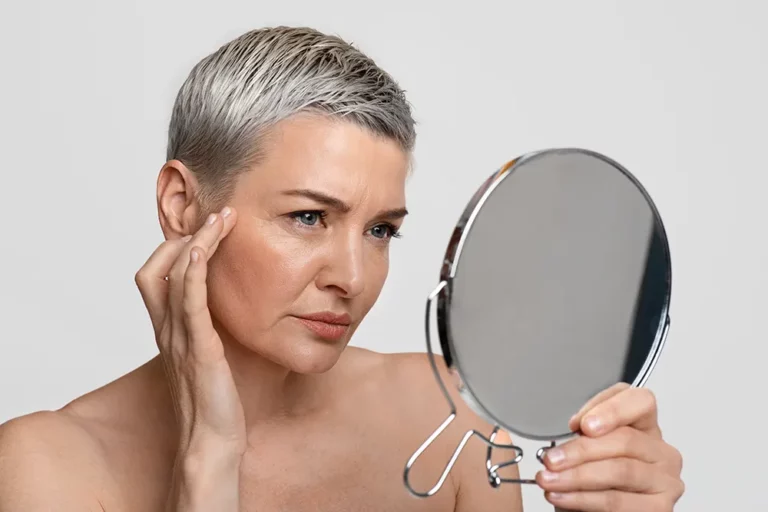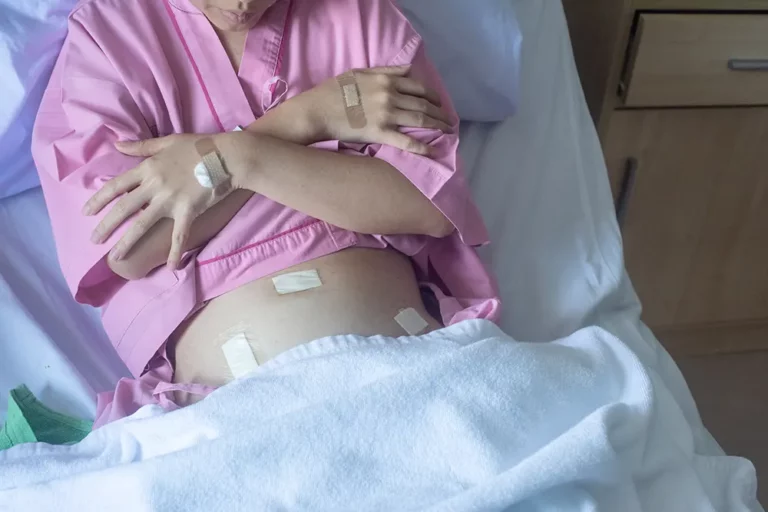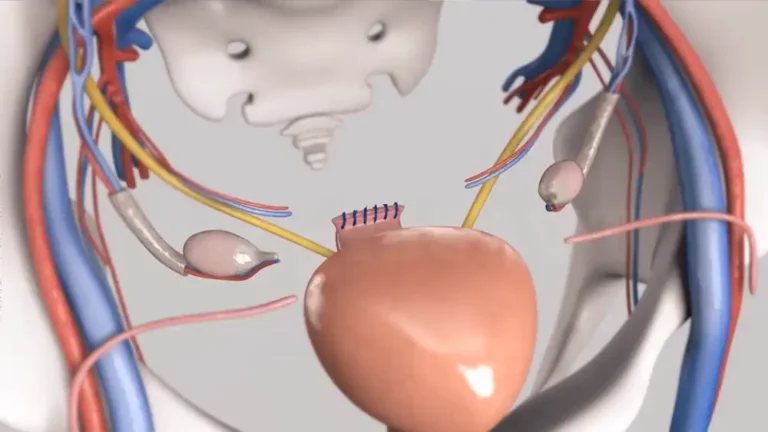Symptoms of Menopause After Hysterectomy with Ovaries Intact
Menopause is a natural stage that signifies the conclusion of a woman’s reproductive years. However, women who have undergone a hysterectomy with intact ovaries embark on a distinct menopausal journey. This article delves into the symptoms and obstacles encountered by women experiencing menopause after a hysterectomy with preserved ovaries. We will also explore viable treatment options and lifestyle adjustments that can effectively alleviate these symptoms.
Understanding Menopause and Hysterectomy
What is Menopause?
Menopause is a normal biological event that takes place when a woman’s menstrual cycle ceases permanently. It is confirmed after 12 consecutive months without a menstrual period. While menopause typically occurs gradually for most women between the ages of 45 and 55, a hysterectomy can lead to earlier menopause regardless of age.

Hysterectomy: A Brief Overview
A hysterectomy is a surgical intervention that entails the removal of the uterus. Depending on the circumstances, it may also involve the extraction of the ovaries and fallopian tubes. Various types of hysterectomy exist, including total hysterectomy, partial hysterectomy, radical hysterectomy, and salpingo-oophorectomy (which involves removing the fallopian tubes and ovaries). The specific type of hysterectomy conducted can impact the timing and encounter of menopause.
Menopause After Hysterectomy: Symptoms and Challenges
Hormonal Changes and Menopause Symptoms
Menopause occurs as a result of hormonal changes in a woman’s body. With the removal of the uterus and/or ovaries, the hormone levels are disrupted, leading to various menopausal symptoms. These symptoms may include:
- Hot flashes
- Night sweats
- Vaginal dryness
- Irregular periods
- Mood swings
- Sleep disturbances
- Changes in libido
- Fatigue

Surgical Menopause vs. Natural Menopause
When menopause is induced by a hysterectomy, it is often referred to as surgical menopause. Surgical menopause differs from natural menopause as it involves an abrupt hormonal shift due to the removal of the ovaries. This sudden change can intensify menopausal symptoms and may require additional medical intervention.
Impact of Ovarian Conservation
For women who have undergone a hysterectomy with ovaries intact, the ovaries continue to produce hormones, including estrogen. However, the production of hormones may fluctuate, leading to irregular symptoms. Some women may experience milder symptoms or a delay in the onset of menopause, while others may still experience menopause symptoms similar to those without ovarian conservation.

Hormone Replacement Therapy and Other Treatment Options
Hormone replacement therapy (HRT) is a widely utilized treatment for effectively managing symptoms associated with menopause. This therapeutic approach entails the administration of estrogen, occasionally in conjunction with progestin, to augment the body’s hormonal balance. By engaging in HRT, individuals can experience relief from bothersome menopausal symptoms such as hot flashes, vaginal dryness, and mood swings. Nonetheless, it is crucial to make the decision regarding HRT after careful deliberation with a qualified healthcare professional, taking into account personal medical history and the possible risks involved.
Apart from HRT, lifestyle changes can also play a significant role in managing menopause symptoms. These are among the most important to take into account:
- Regular exercise
- Balanced diet
- Stress reduction techniques
- Sufficient sleep
- Smoking cessation
- Limiting caffeine and alcohol intake
Conclusion
Menopause after hysterectomy with ovaries intact can present unique challenges for women. The hormonal changes associated with the procedure can result in menopausal symptoms that require careful management. Understanding the symptoms and available treatment options, such as hormone replacement therapy and lifestyle changes, can empower women to navigate this phase with confidence and improve their overall well-being.
It’s important for women to remember that each individual’s experience with menopause after hysterectomy may vary. Consulting with a healthcare professional is crucial to develop a personalized approach to managing symptoms and addressing any specific concerns.
Additionally, prospective research on ovarian function and the long-term effects of hysterectomy with ovarian conservation is ongoing. It aims to provide more insights into the impact of the procedure on menopause and overall health.
Beyond of the reason for undergoing a hysterectomy, whether due to a medical condition, such as uterine fibroids or cancer, or a personal choice, the decision to remove the uterus and potentially the ovaries is a significant one. It is essential to have a thorough understanding of the potential effects on menopause and to have open discussions with healthcare providers to make informed decisions.
FAQs
What are the common symptoms of menopause after a hysterectomy with ovaries intact?
The symptoms of menopause that occur after a hysterectomy with intact ovaries can vary from individual to individual. Common signs may include hot flashes, mood swings, vaginal dryness, and hormonal changes.
Are there any remedies for managing menopause symptoms after a hysterectomy?
There are various treatments available to ease menopause symptoms after a hysterectomy. These can include hormone replacement therapy (HRT), making lifestyle adjustments and considering alternative therapies like herbal supplements or acupuncture. It is crucial to seek guidance from a healthcare provider in order to identify the most appropriate choices for you.
What are the potential risks of undergoing hormone replacement therapy (HRT) after a hysterectomy?
While HRT can effectively manage menopause symptoms, it is important to consider potential risks. These may include an increased risk of certain health conditions such as cardiovascular disease, stroke or breast cancer. It is advisable to discuss the benefits and risks of HRT with a healthcare provider.
How soon can menopause symptoms occur after a hysterectomy with intact ovaries?
Menopause symptoms can vary in onset after a hysterectomy with intact ovaries. Some individuals may experience immediate symptoms, while others may take some time to enter menopause. The timing can depend on factors such as hormonal changes and individual differences.
Can the risk of ovarian cancer be reduced by removing the ovaries during a hysterectomy?
Removing the ovaries during a hysterectomy can significantly reduce the risk of ovarian cancer. However, this decision should be made after considering personal factors, such as family history and overall health as well as consulting with a healthcare professional for the best approach.
Regardless of the reason for having a hysterectomy, can you still go through menopause?
Yes, regardless of the reason for a hysterectomy, menopause can still occur. If the ovaries are removed, menopause typically happens immediately or shortly after the surgery (surgical menopause). If the ovaries are left intact, menopause may be delayed but will eventually occur naturally.





